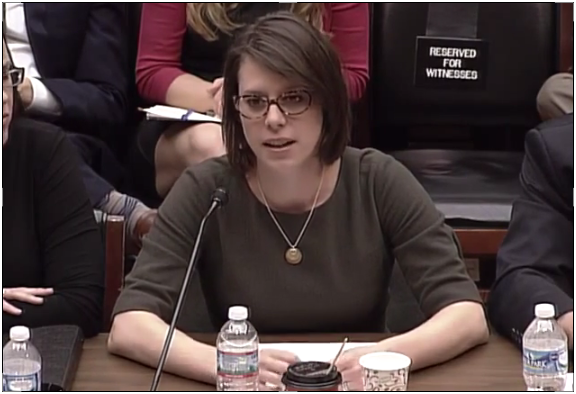By Rick Manning
On March 17, the House Energy and Commerce Communications and Technology Subcommittee convened a hearing to begin to review a proposal by the National Telecommunications and Information Administration (NTIA) to transition key domain name system functions to the Internet Corporation for Assigned Names and Numbers (ICANN).
At it, U.S. Rep. Anna Eshoo (D-Calif.) pointed to the fact that Congress has defunded the Internet giveaway from occurring and wanted to know what the so-called multistakeholder community would think if the prohibition were to be continued.
“I understand why there was language placed in the FY16 omnibus, it was a rider you’re all familiar with. It stated no funds could be used to relinquish NTIA’s responsibilities, etc., etc. These are all tools that the Congress uses for very specific reasons, and they are what they are. They’re warning shots and it’s important to, you know, send a message across the bow,” Eshoo stated.
“But, if that were to continue, given where we are now, another rider, what does that do? What message does that send to all of this consensus you’ve spoken to?” Eshoo asked.
Audrey Plonk, Director, Global Security and Internet Governance Policy, Intel Corporation told the subcommittee that if the U.S. fails to give away the Internet, “I think it sends a very negative message to the markets, to the international community, and I don’t just mean governments, but I mean the business community that we weren’t serious about carrying forward our commitment to, you know, turn this over to the multistakeholder community.”
Plonk added ominously, “I think that’s bad for investment, that’s bad for business. It will incentivize other trade barriers that we see in the tech sector being raised in many countries — it will provide a rationale.”
Trade barriers? That’s a new argument. Really, it’s a remarkable argument. Think about it.
Congress has defunded the Internet giveaway three times now, and now Intel is warning there will be an apparent trade war in the tech industry in retaliation if the U.S. does not cede these functions to the international community.
Was that a threat? Because it sure sounded like one.
This single exchange between Rep. Eshoo, who asked a very good question about Congress asserting its Article One power of the purse responsibilities under the Constitution — when no other member on the subcommittee even bothered — and Intel’s Plonk, who responded by threatening a trade war underscores exactly the Pandora’s Box that is being opened should Congress proceed with the Internet giveaway.
What countries specifically are so desperate for the U.S. to cease oversight of the domain name system that they are threatening a trade war in the tech sector?
Has Intel been threatened that their products will no longer be welcome in certain countries if the transition does not occur?
We have to assume that Plonk did not commit perjury, and that a threat has been issued. This makes NTIA’s short flippant response that approximated “don’t worry, be happy” to a Congressional mandate that they develop a contingency plan should the transition be deleterious to the United States all the more outrageous. After more than a year, no contingency plan has been produced by the agency.
Apparently, foreign governments feel that the transition is so important to them that they are threatening Intel and other U.S. based tech companies with possible trade sanctions should the transition not occur, they believe the stakes are high even as Obama is asleep at the wheel.
Given the Obama Administration’s refusal to take this threat seriously, Congress has a responsibility to halt any transition until the underlying consequences are fully understood. Unfortunately, the House Energy and Commerce Subcommittee members participating in the hearing fumbled the ball and failed in their most basic responsibility to get clarity from Plonk about the threats and their motivation.
What’s more, the very fact that a huge multinational company expresses fear of foreign government coercion if the Internet is not given away should raise massive red flags to the type of pressure ICANN will face when it is threatened with potential foreign capture without the U.S. government to provide it cover as occurs in the current system.
It is the exact foreign coercion that Intel testified to under oath, that is the exact reason not to do it.
Yet here we are, a short six months from the planned Internet giveaway. The Eshoo-Plonk exchange should serve as Exhibit A on why Congress should never cede these critical domain name system functions to anyone. The only question is will the GOP Congress hold firm in their heretofore unshaken opposition to the giveaway?
Rick Manning is the President of Americans for Limited Government.







